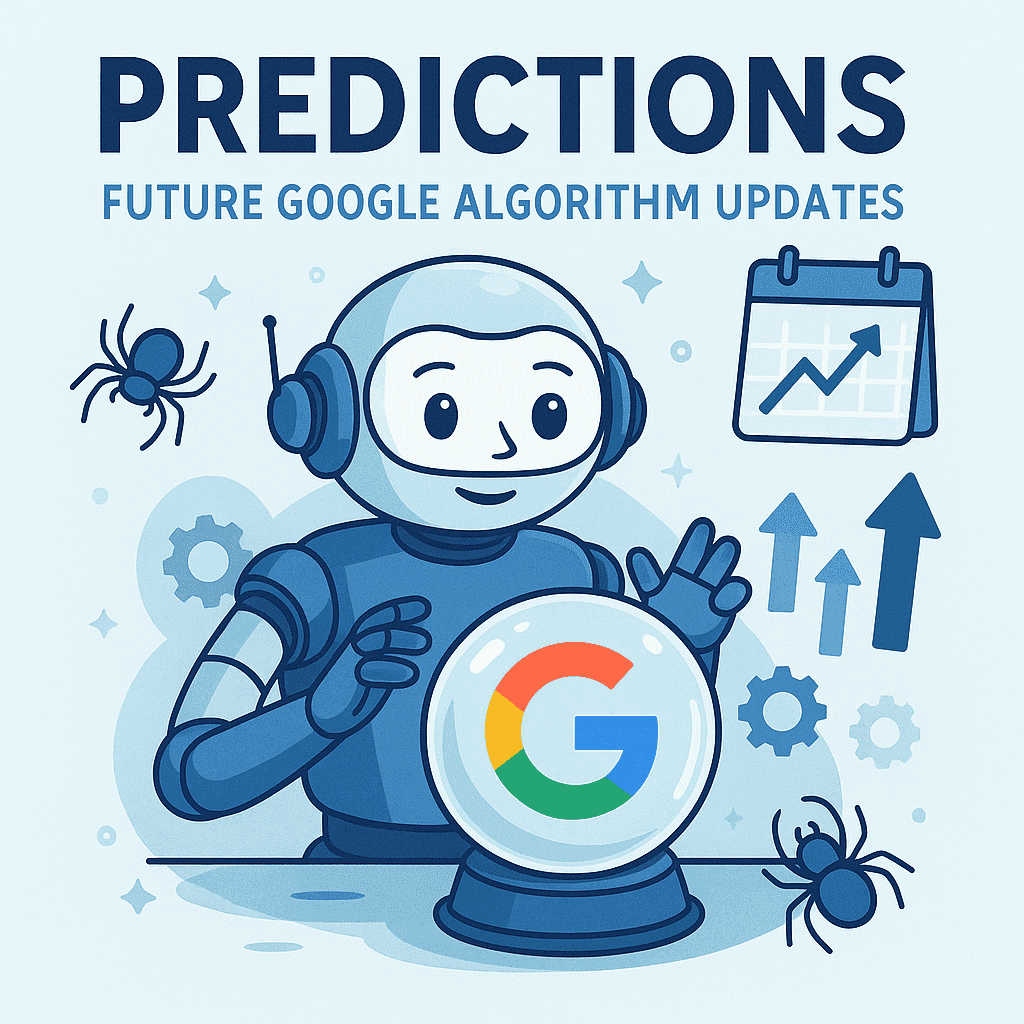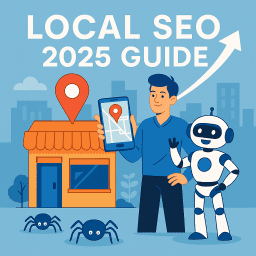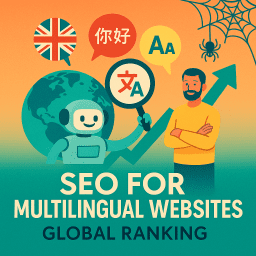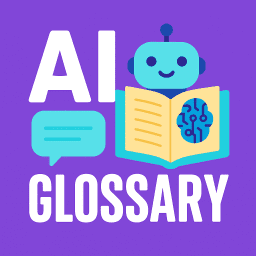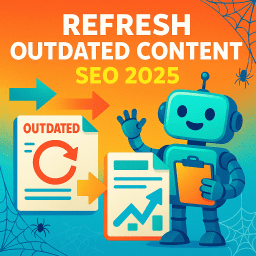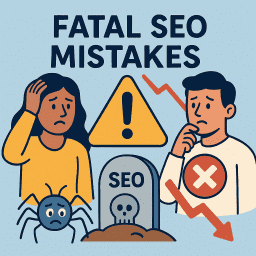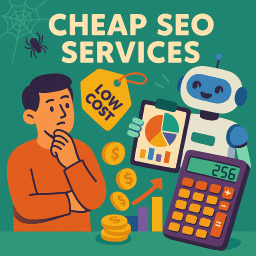Future Google Algorithm Updates: Predictions & Advice
What to expect from Google’s next updates – and how to prepare
🚀 Stay Ahead: What Google’s Algorithm Might Do Next
Google releases thousands of algorithm tweaks each year, along with occasional core updates. While most go unnoticed, others reshape how we approach search entirely. In 2025 and beyond, the rapid rise of AI, user-first ranking signals, and stricter quality standards are changing the landscape of SEO.
In this article, I’ve put together realistic predictions for upcoming Google algorithm updates—drawing on current trends, official statements, and industry insights. You’ll also find practical steps to help future-proof your SEO efforts before the next big shift arrives.
1. 🔄 Greater Emphasis on AI Responses
As Google continues expanding its “AI Overviews” and Search Generative Experience (SGE), future updates will likely prioritise content optimised for machine summarisation. Sites that present structured, citation-friendly answers will see more visibility in AI-generated results.
Prediction: SEO will evolve into “Generative Engine Optimisation” (GEO). Pages that use FAQs, schema, and logical formatting will perform best in AI search contexts.
2. ⚡ Quality & Human Expertise Signals (E-E-A-T)
Since Google’s focus on E-E-A-T (Experience, Expertise, Authoritativeness, and Trustworthiness), content quality is under the microscope. Pages lacking clear authorship, external validation, or first-hand insights will continue to struggle.
What to do: Make your authors visible, include credentials, and back up claims with external sources. Add reviews, testimonials, and case studies where possible.
3. 🧠 User Engagement Metrics as Ranking Signals
Google is placing more weight on how users interact with content. Bounce rate, dwell time, and click-through behaviour are increasingly used to infer relevance and quality.
Prediction: Thin content that ranks well but doesn’t satisfy user intent will drop in visibility. Engagement-focused UX is becoming as important as keyword targeting.
4. 📱 Mobile-First & Multimodal Signals
With the rise of visual and voice search, Google is likely to blend traditional SEO with multimodal performance. How your content is displayed in voice queries, image carousels, and visual search may influence ranking more than ever.
Action step: Optimise for mobile UX, add alt text to images, and ensure all media is accessible with transcripts or captions.
5. 🛡️ Spam & AI-Generated Content Crackdown
Recent updates have targeted low-quality, AI-generated content and reputation abuse. Expect stricter crackdowns on spam tactics like mass content automation, expired domain reuse, and link manipulation.
Tip: Use AI to assist, not automate. Prioritise original thought, real insights, and transparent publishing practices.
6. 🤝 Brand Recognition & Off-site Authority
Backlinks still matter—but future updates may favour wider brand signals. Being mentioned on podcasts, cited in niche communities, or covered in media could impact visibility just as much as traditional links.
Insight: Build your off-site presence through digital PR, speaking opportunities, and guest content on relevant platforms.
7. ⏱️ Update Cadence: Faster, Yet Targeted
Google’s algorithm is evolving constantly, and core updates are now more frequent. Expect smaller but more focused updates aimed at specific content types (e.g., product reviews, health info, educational content).
Recommendation: Track search visibility weekly. React early to minor ranking changes—these may reflect early signals of a broader shift.
💬 What the Experts Are Saying
- John Mueller (Google): “Focus less on clicks—more on what brings real value to your users.”
- Rand Fishkin: “If you want to influence the algorithm—go influence the web.”
- Lily Ray: Advises creators to diversify content formats and reduce dependence on search alone.
- Barry Schwartz: “Google’s moving faster and with more subtle shifts—monitor your niche, not just the headlines.”
🛠️ How to Prepare: Practical SEO Steps
- 📄 Optimise for AI summaries: use structured data, FAQs, and concise answers.
- 👤 Highlight author expertise and credentials on content pages.
- 📊 Improve on-page engagement: internal links, clear CTAs, and easy navigation.
- 📱 Make content mobile-first, multimodal, and voice-friendly.
- 🔗 Build brand mentions through PR, podcasts, and citations—not just backlinks.
- 🧑💻 Publish a mix of timely and evergreen content—updated regularly.
- 🧪 Run experiments: track how Google responds to changes in content and structure.
✅ Final Thoughts
The future of Google’s algorithm is heading toward a more human, helpful, and holistic model. SEO won’t be about tricking the system—it will be about proving relevance, authority, and real value. As AI reshapes how content is discovered, those who adapt early will have the edge.
Don’t wait for the next update to shake your traffic. Start making your site future-ready now—by investing in quality, clarity, and credibility.
📝 Recap and Clarify: Post-Specific FAQs
Will Google continue rolling out core updates?
Yes. Google will likely continue releasing broad core updates, but they may become less transparent and more continuous, with AI-driven refinements happening behind the scenes.
Is Google becoming more secretive about algorithm changes?
Yes. Google has signalled a shift away from formally announcing many updates, preferring continuous, unannounced changes that reduce public scrutiny and manipulation.
Will AI-generated content be penalised in the future?
Poorly written or mass-produced AI content may be downranked. However, high-quality, human-edited AI content that provides value is unlikely to be penalised outright.
How will Google’s use of AI change SEO?
AI will help Google better interpret content, understand intent, personalise results, and reward genuinely useful websites—raising the bar for content quality and structure.
What is “SGE” and how will it affect rankings?
SGE stands for Search Generative Experience. It uses AI to generate answers directly in search, potentially reducing clicks to traditional organic listings and shifting SEO strategy.
Will links still matter in future Google updates?
Links will likely remain a factor, but their influence may continue to decline in favour of content quality, user satisfaction, and topical authority.
Is E-E-A-T becoming more important?
Yes. Experience, Expertise, Authoritativeness, and Trustworthiness (E-E-A-T) will continue to be central to Google’s algorithm, especially for YMYL (Your Money or Your Life) topics.
Will Google updates become more personalised?
Yes. With AI and user data signals, Google is likely to personalise results more, meaning rankings may vary significantly depending on who’s searching and how.
Should I change my SEO strategy in 2025?
Yes. Focus less on tricks and more on creating genuinely useful, intent-matching content with strong UX, fast performance, and consistent topical depth.
How can I stay ahead of future updates?
Follow official Google guidance, prioritise quality over shortcuts, monitor your metrics in Search Console, and stay informed via trusted SEO sources like The SEO Guide Book.
The only constant in SEO? Google will keep moving the goalposts. – David Roche
Video Recap – 🔮 The Future of Google Algorithm Updates — SEO Predictions for 2025 & Beyond
What will the next Google algorithm update look like? In this video, I’ll share my predictions for how AI, trust, and user experience will shape the future of SEO – and how you can stay ahead before the next update hits.
The future of SEO isn’t about chasing updates – it’s about building trust. Focus on quality, user value, and clarity, and every new algorithm will work in your favour.


